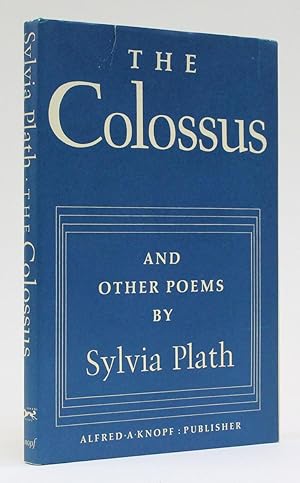
The depressive Plath committed suicide in 1963, garnering accolades after her death for the novel The Bell Jar, and the poetry collections The Colossus and Ariel. Plath met and married British poet Ted Hughes, although the two later split. Gwyneth Paltrow plays Sylvia Plath to Daniel Craig's Ted Hughes in this recent movie.Sylvia Plath was an American novelist and poet. The Unabridged Journals offer all of Plath's uncensored journal entries for the first time.Ĭheck out the collection where the poem was originally published. Plath wrote in journals from the age of twelve until her death at age 30. This collection won Plath the Pulitzer Prize. Booksīehold: Plath's poems, in chronological order. This is a New York Times article about Plath's life and Pulitzer Prize-winning Collected Poems. "You Could Say She Had a Calling for Death" Here's a 1956 photo of Plath and her husband, fellow poet Ted Hughes.Ĭheck out a portrait Plath painted of herself in the early 1950s. Plath discusses her poetry and inspiration.Ĭheck out this NPR "All Things Considered" episode on Plath. This is the audio for a 1962 interview with Sylvia Plath. VideoĬheck out Gwyneth Paltrow enacting Sylvia's final moments. The University of Illinois provides commentary on a variety of Plath's poetry, as well as biographical information, photos, and an interview. Steinberg, has lots of information on Plath's life and work, as well as numerous photos. This site, made and maintained by Plath scholar Peter K. This site has lots of great snippets from top critics on "The Colossus."įind her biography and links to her poems on the Academy of American Poets' website. Maybe the speaker isn't the only one whose "hours are married to shadow" (28). Sometimes knowing somebody else is out there, feeling the same way you do, is all it takes to feel a little bit better. As we hear her reflect on her own problems, we get some perspective on our own. When she teases the Colossus of the title for thinking that it's an "oracle," it seems like she's also laughing at herself for expecting it to be (6). Though the speaker doesn't see a way out of her attachment to the past, she has a wry sense of humor about it. Of course, even though the poem is dark, that doesn't mean it's all doom and gloom. It's a really hard thing to do, but unfortunately almost all us have had to face some similar situation. The speaker in Sylvia Plath's "The Colossus" seems to have lost her father (symbolized by a giant fallen statue), and she just can't find her way out of all the emotional baggage that's created. The sad thing is that a lot of us have lost something that was really important to us. Whether it's a loved one, a teddy bear, or an essay that took all night to write but that you forgot to save on your laptop, everybody has lost something in their lives.

What is The Colossus About and Why Should I Care? "The Colossus" and the many other poems in the collection are still seen as some of most haunting and beautiful pieces in the history of American poetry.

In 1982, nineteen years after Plath's death in 1963, Hughes published his wife's Collected Poems, which won the Pulitzer Prize. Along with the rest of the poems in the collection, it was received well, and most critics agreed that Plath was a poet to watch out for. Some have said that the giant shattered statue in the poem is meant to represent the father that Plath lost at an early age. "The Colossus" was first published in The Colossus and Other Poems in 1960. Though her life was short and troubled, Plath wrote a ton of poems and earned her place as one of the greats of American poetry. (Shmoop: bringing you the understatement of the year.) Yeah, this lady's poems were dark, but you can totally see where all that darkness came from.

His leg had to be amputated, and he eventually died from complications from his long hospitalization, which can't have been an easy thing for an eight-year-old to deal with. When she was eight, for example, her father Otto died from untreated diabetes. Plenty of bad stuff happened earlier in her life as well. Her rocky-make that mega-rocky-marriage to fellow poet Ted Hughes and her suicide have been the center of a storm of discussion and controversy. This is kind of too bad, because her poetry rocks on its own. It's probably safe to say that Sylvia Plath is almost as famous for her mega-sad life as she is for her poetry.


 0 kommentar(er)
0 kommentar(er)
